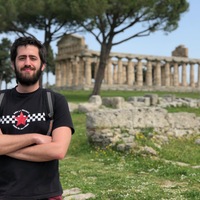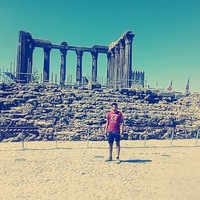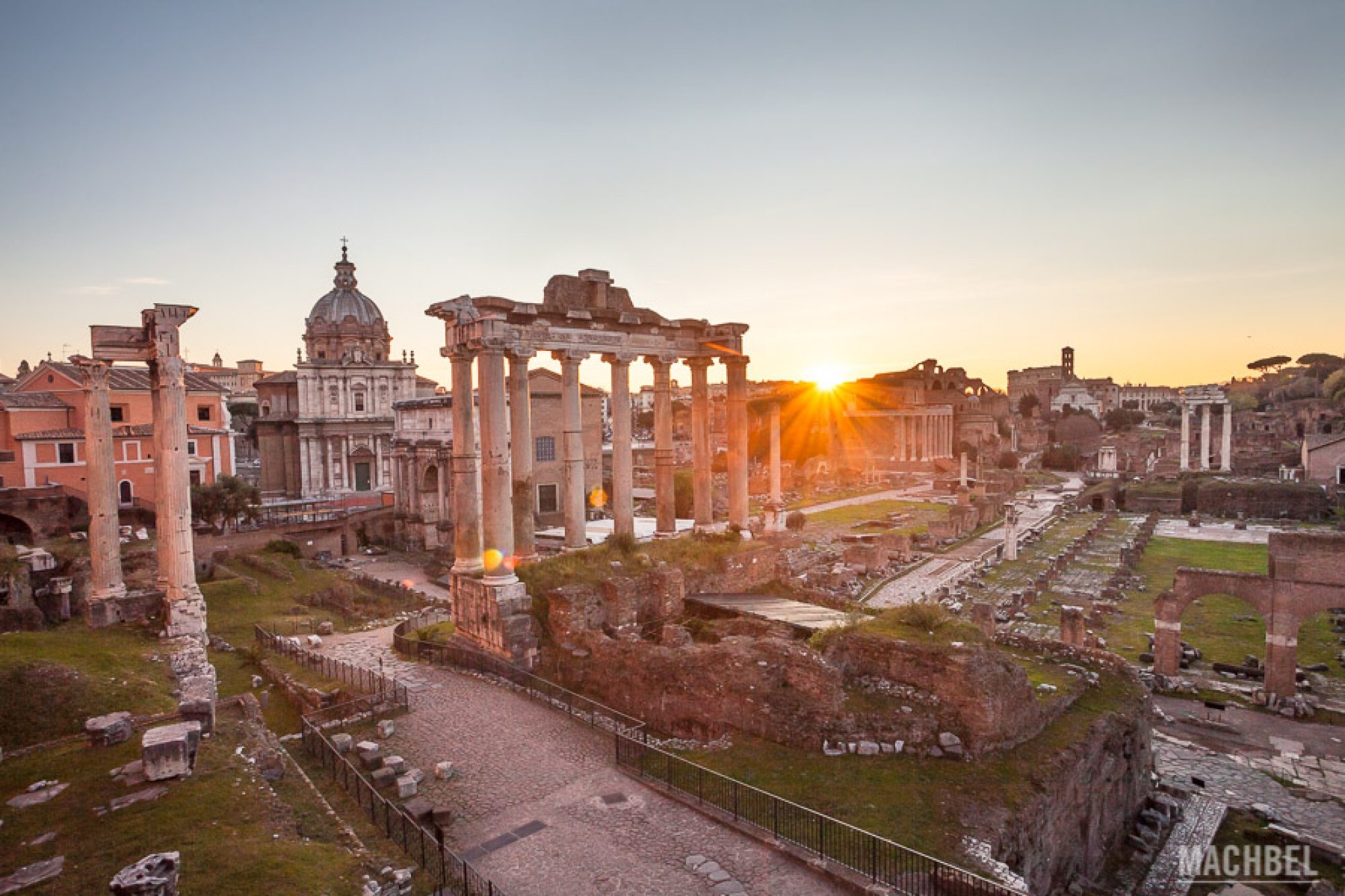
Title of the thesis project: “The public vs. private dialectic in Rome in the Second Century B.C.: the ager publicus in the Gracchan context”
The Gracchan reforms have always been a source of controversy, with a strong political charge. In the years 60 and 70 of the 20th century, during the cold war, there was an attempt to “depoliticize” them, removing any shadow of Communism: the Gracchan would have not wanted to distribute public land among the poor citizens motivated by a desire for equality but they were moved instead by their concern at the decline in the population. What prompted them to act, according to this idea, was his desire to keep a large number of soldiers in the legions. The army, not the distributive justice, was the aim of their reforms. However, this idea collides against the repeated testimony of sources who insist on the ascendancy on Tiberius Gracchus of a stoic philosopher: Blossius of Cumae. Our proposal is to move forward on this issue on the assumption that the Gracchan brothers contented themselves to apply notions of public and private that were taken from both Greek Stoicism and Epicureanism and that diverge considerably from the way these two notions were tradictionally understood in Rome. The hellenization of Rome should be seen as a political process that was cause of conflict and not just as a mechanism for cultural exchange.
-
- Andoni Llamazares Martín (University of País Vasco / Euskal Herriko Unibertsitatea)

PhD student at the Universitat de Girona where he works on his doctoral dissertation entitled ‘The political role of minores gentes in Republican Rome. The Papirii’, supervised by Prof. Toni Ñaco del Hoyo, ICREA-Girona. This work focuses on the political role of gens Papiria, a Roman clan of patrician origin (often labelled as a gens minor) formed by several family lines whose activities have hardly deserved major scholarly attention to date. However, some individual Papirii held significant political influence, particularly in the second half of the fourth and throughout the third centuries BC. The present study develops an earlier Master Thesis (2017) on consul C. Papirius Maso’s performance of his triumphus in Monte Albano in 231 BC, and the political debate concerning such first unofficial triumph in Rome. In this PhD project, outlining the trajectory of the Papirian gens and its individual members will allow us to better understand the difficulties suffered by the minores gentes across the Republican period, whilst fighting their political corner amongst the aristocracy and its powerful factions.
Gerard Cabezas Guzmán (University of Girona)
In third century BCE Rome began its progressive territorial expansion overseas which can hardly be separated from an equally progressive advance into seafaring and maritime experience. Seminal studies such as P. Horden & N. Purcell, The Corrupting Sea: a Study of Mediterranean History (Oxford 2000) or, more recently, M. Pitts & M.J. Versluys (eds.), Globalization and the Roman World. World History, Connectivity and Material Culture (Cambridge 2015) highlight the relevance of the sea as a connector but also as an active actor for Roman social dynamics. Accordingly, my PhD dissertation -entitled ‘Mare Magnum. The Roman maritime understanding in the Middle Republic: from ‘fear of the sea’ to connectivity’- aims to deal with the role played by the Mediterranean Sea in Rome’s increasingly hegemonic power. In order to accomplish such goals, I will focus my attention on Rome’s military usage of seafaring (particularly regarding its logistic role in support of its land armies), alongside its final integration into the Roman ‘mind’ during such centuries.
Gerard R. Ventós (University of Girona)

PhD student at Universitat de Girona, with a dissertation entitled ‘Divide et Impera. Stasis and the progress of Roman imperialism in the West during the Middle Republic’, jointly supervised by Toni Ñaco del Hoyo (ICREA-Girona) and Eduardo Sánchez Moreno (Universidad Autónoma de Madrid). This study aims to focus on ‘stasis’ (internal strife) suffered by Rome’s opponents in the West and its use (and abuse) by Republican Rome, as a means of political control over them. In particular, in the early stages of Rome’s intervention pro-Roman factions lobbied in its favour, while other factions positioned themselves against the Roman moves. Internal strife in the social and political sphere eventually resulted in more serious conflicts. The struggles benefitted Rome’s interests, extending more decisively its political, economic and military influence over such internally divided polities. Several studies have been recently devoted to the imperialistic use of ‘stasis’ during the Republican intervention in the Greek East. However, the more fragmentary state of our evidence from the West has hardly allowed us to have a similar global approach to this phenomenon. The present research intends to outline some insights in order to achieve such a goal.
-
-
-
- Luis Silva Reneses (University of Genève)
-
-

“Deconstructing mos maiourm. The use of ancestors as a rhetorical device in the late Roman Republic”
The concept mos maiorum has played a central role in contemporary studies about institutions, ideology, memory and culture of the Roman Republic. However, its definition remains problematic. On the one hand, scholarship has suggested so many meanings for this concept, that mos maiorum has become a “hodgepodge”. On the other hand, this sintagm is much less frequent in literary sources than it may seem.
Therefore, this research project will question the usefulness of mos maiorum as an analytical category. Moreover, we will propose a methodology based on the study of the references which include the allusions to ancestry only through the term maiores. Concretely, we will focus our research on public speeches, where we will analyse the use of the forefathers as a rhetorical device. Consequently, this study will discuss some of the most relevant features and implications of the political culture of the late Roman Republic.
Rubén Escorihuela Martínez (University of Zaragoza)
Disciplina e insurrección en el ejército republicano (509-27 a.C.)
A lo largo de los siglos, la historiografía tradicional nos ha dejado como herencia una visión muy específica del soldado romano. Fiel a su comandante y leal a Roma, su representación se ha movido entre el mito y la leyenda, dando lugar a una imagen poco probable de la realidad. Al respecto, el objetivo del presente estudio es cuestionar y reinterpretar la imagen del soldado romano, tomando como marco de referencia el periodo de la Roma republicana y el fenómeno del motín como hilo conductor. Así, a través del análisis de las principales insurrecciones del ejército romano republicano y del estudio de los diferentes elementos de cohesión y coerción diseñados y empleados por el Estado y las autoridades políticas y militares romanas para garantizar y mantener la unidad y el control de las tropas, se pretende demostrar cómo el soldado republicano, lejos de ser un mero instrumento al servicio del poder, tuvo la suficiente autonomía y libertad como para influir en el devenir sociopolítico de la República romana.
Palabras clave: ejército romano, República romana, insurrección, cohesión y disciplina.
-
-
-
- Rebeca Cordeiro Macenlle (University of Santiago de Compostela)
- Unai González (University of País Vasco / Euskal Herriko Unibertsitatea)
-
-
